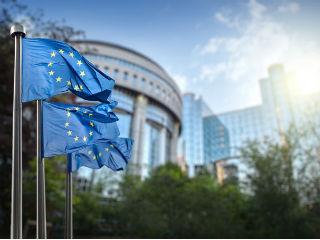by
Jaap Hoeksma*
Ever since the foundation of the European Union in 1992, the question has been whether it is possible for the Union to function on a democratic footing. In the political debate, the EU has been portrayed by its opponents as a bureaucratic monster, as a modern Leviathan, or as the embodiment of the Fourth Reich.
According to academic critics, the EU cannot survive in its present form as it is neither a sovereign state nor a union of sovereign states. Pursuing this line of thought, Joseph Weiler, the President of the European University Institute, argued in 2012 that democracy is not in the legal DNA of the EU. He even compared the Union to the 17th century Golem of Prague, who destroyed his own creators.
The claim that the EU and democracy are two irreconcilable concepts has been exploited by the adversaries of the Union in various member states. In the hands of Nigel Farage, it has proven to be one of the most effective weapons in the campaign to leave the EU. In other member states, such as Austria and the Netherlands, it continues to be the Achilles’ heel of pro-European parties. Although the future of the EU seems to be somewhat brighter after the elections in France, it remains imperative for the Union to develop a theory with which the imputation of its opponents can be dismissed out of hand. The lesson of Brexit is that the EU shall either be democratic or cease to exist.
The debate about the State of the Union will provide the European Commission and the European Parliament with an excellent opportunity to demonstrate that the lesson of Brexit has been learned. So far, the signs are not too encouraging.
The position of the Commission seems to be somewhat ambiguous. It prides the EU on being the largest union of democratic states on the globe, but fails to submit proposals for improving the democratic character of the EU as such. Instead, it suggests a discussion about various modes of cooperation between the member states. The implication of this suggestion is that there is no direct relation between the Commission and the citizens of the Union. This impression is corroborated by the reply that Commission President Jean-Claude Juncker gave to parliamentary questions and in which he referred to “the 28 Member States which constitute the Union and which represent indirectly their national citizens in the Council, and directly in the European Parliament”.
It seems incomprehensible that the President of the European Commission would make such an elementary mistake. As the guardian of the treaties the Commission has a special obligation to ensure their proper interpretation. Article 10 (2) of the Treaty on European Union unequivocally states that “citizens are directly represented at Union level in the European Parliament”. The suggestion that “the Member States directly represent their citizens in the European Parliament” is almost absurd.
As the essence of the European Parliament is at stake in this statement, MEPs should use the debate about the State of the Union to correct the Commission. Each of them has been directly elected by the citizens of the Union and not through intermediary of any national government. During the debate MEPs could also point out that it will be impossible to restore the trust of the citizens in the Union without taking their perspective and interests into account.
The theory of democratic integration offers a suitable model for undertaking this endeavour. It holds that if two or more democratic countries agree to share the exercise of sovereignty in a number of fields in order to attain common goals, the organisation they set up for this should be democratic too. In consequence, the EU should not only pride itself on being the largest union of democratic states on the globe, but it should also aspire to function as a constitutional democracy of its own.
Obviously, the transition of the EU from an organisation of democratic states to a democratic polity of states and citizens requires time, patience and perseverance. It can, however, not be done without purpose and determination. Fortunately, the new theory reveals the intrinsic driving force behind the process.
There is no point in governing an organisation of democratic states in an undemocratic manner. Indeed, the wisdom of the aphorism that the EU shall either be democratic or cease to exist might materialise sooner than we think.
*First published in www.friendsofeurope.org




 By: N. Peter Kramer
By: N. Peter Kramer

